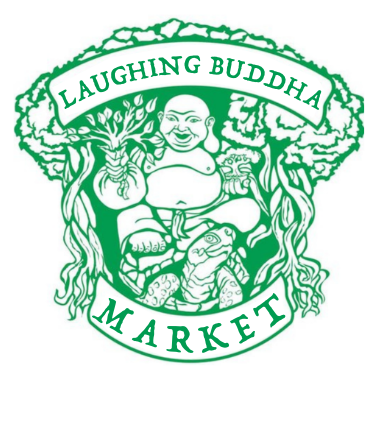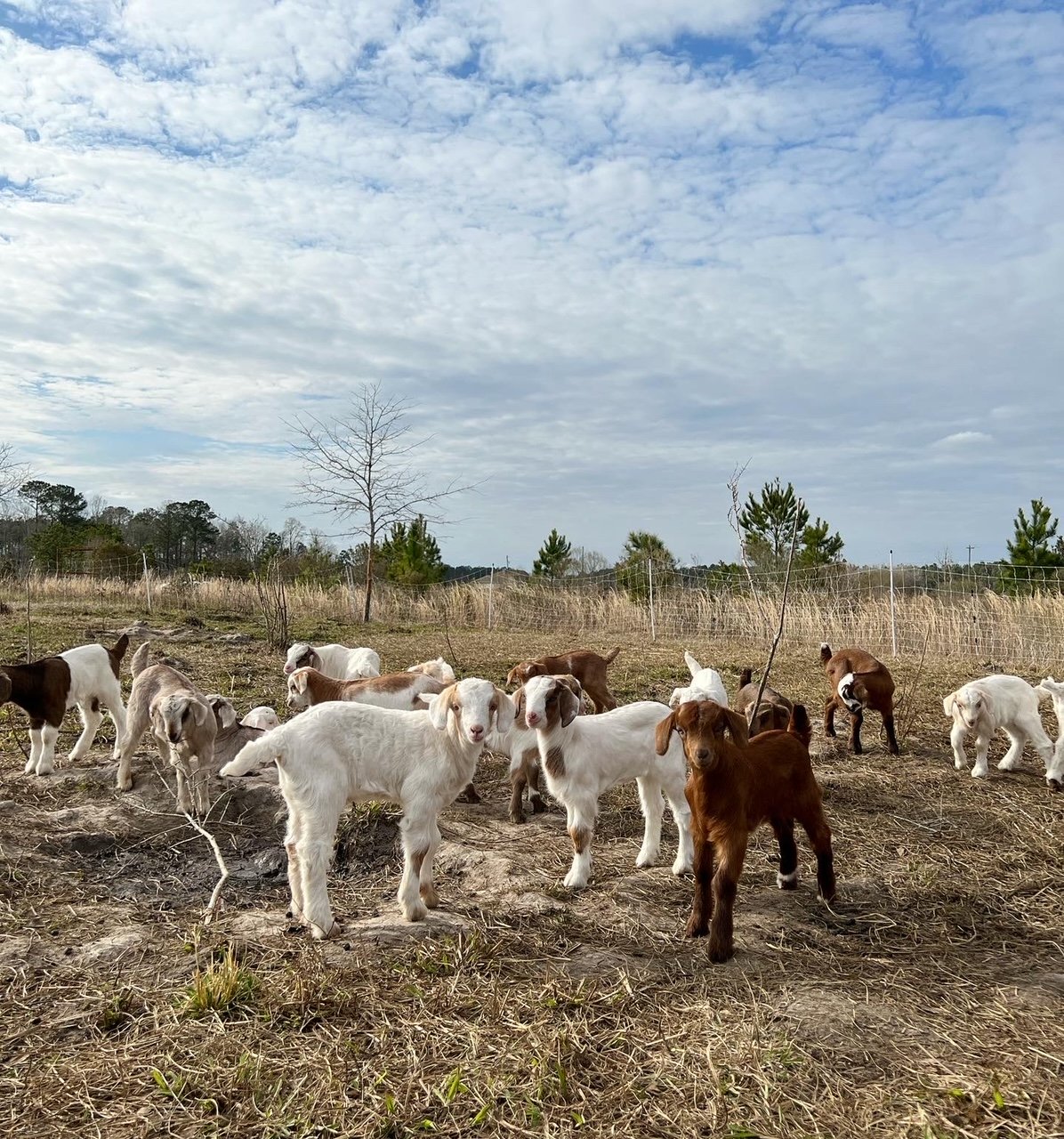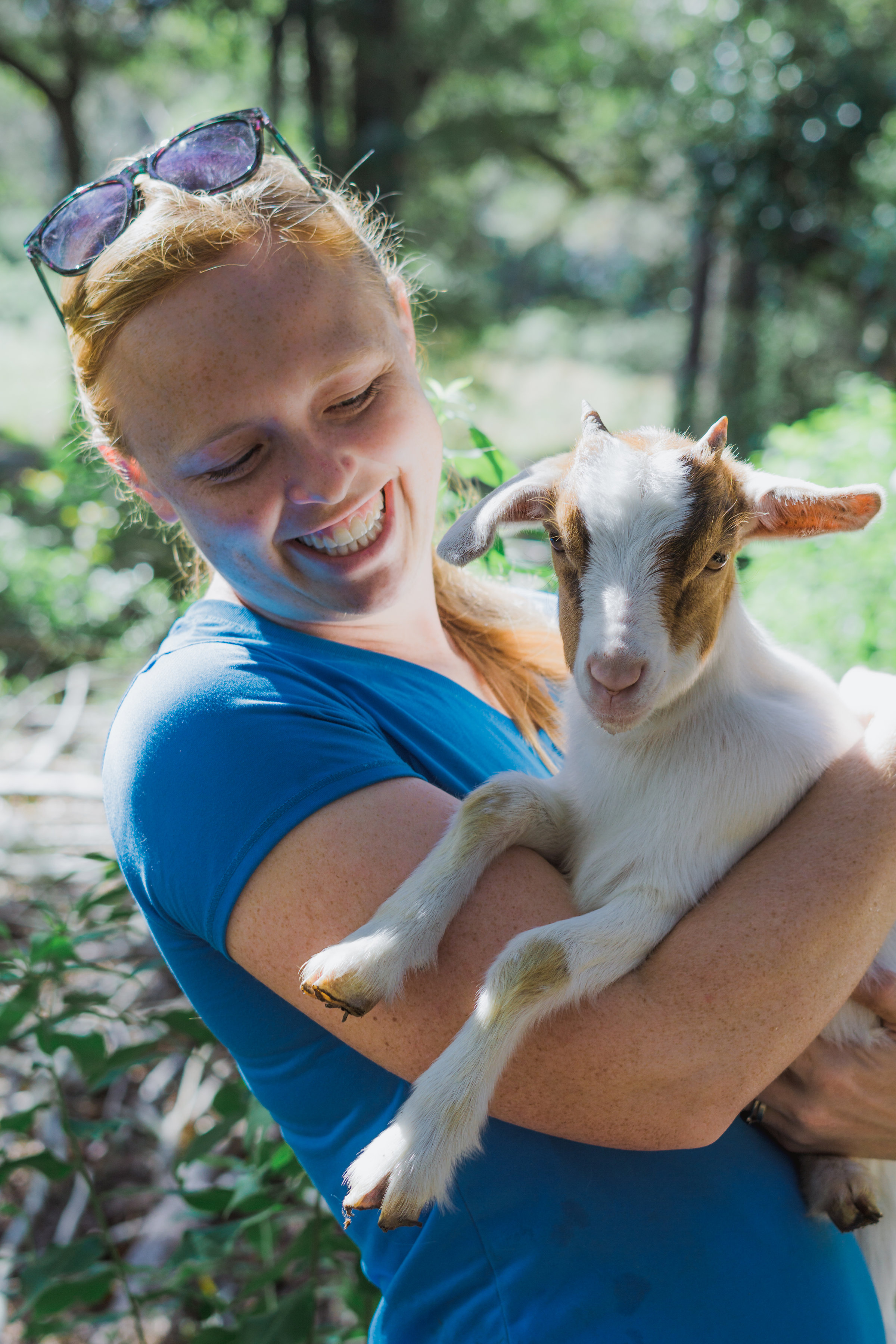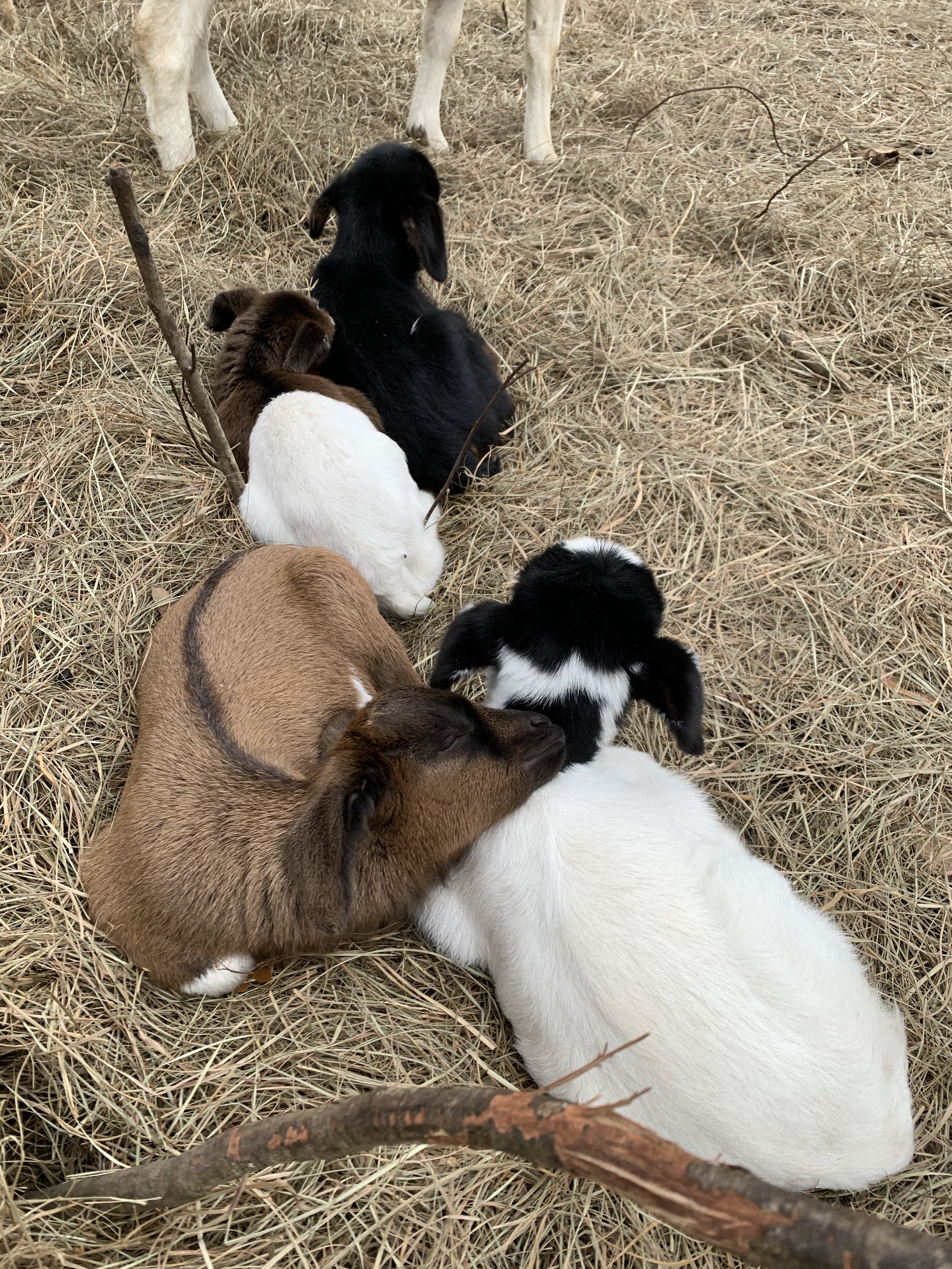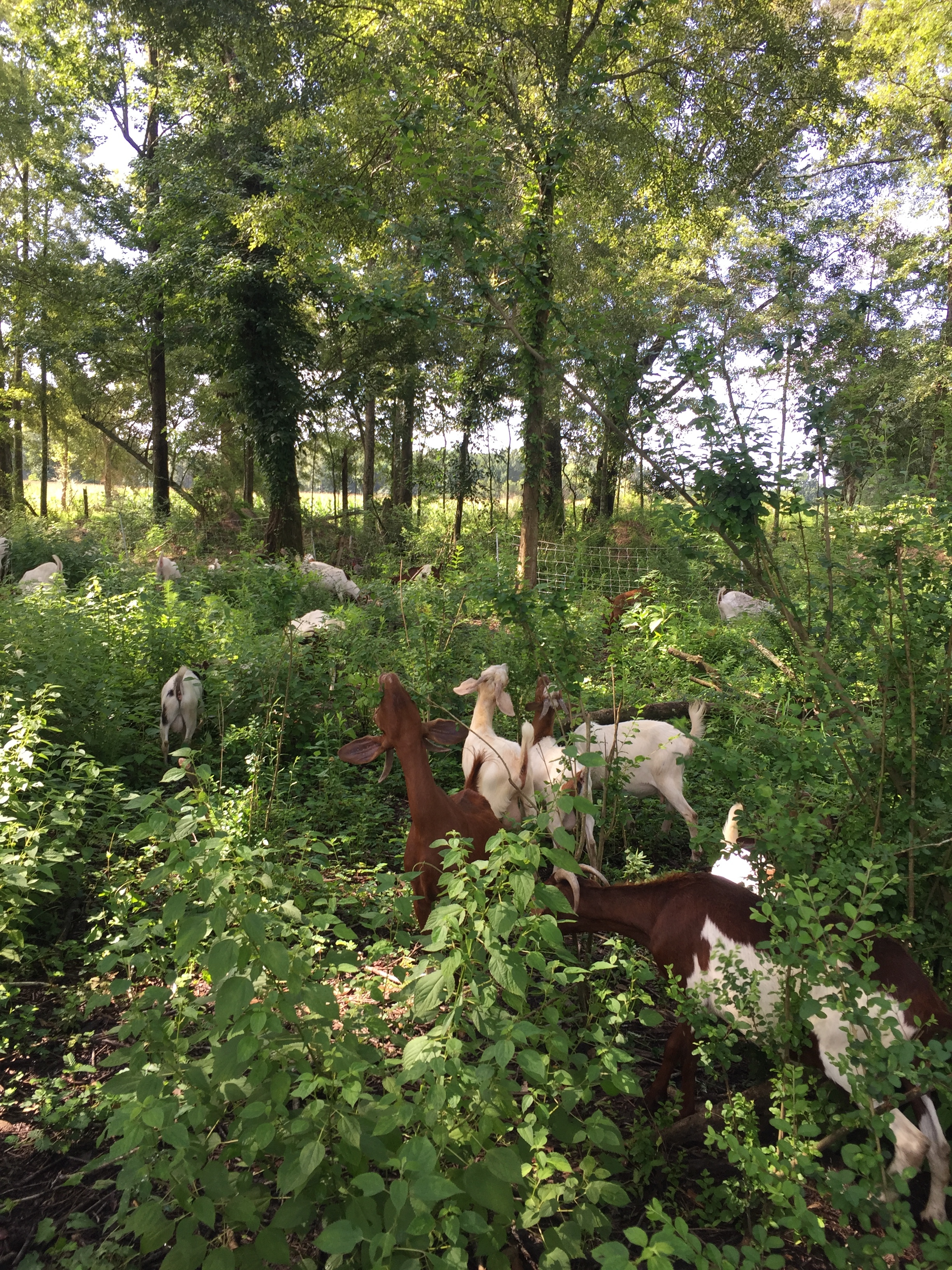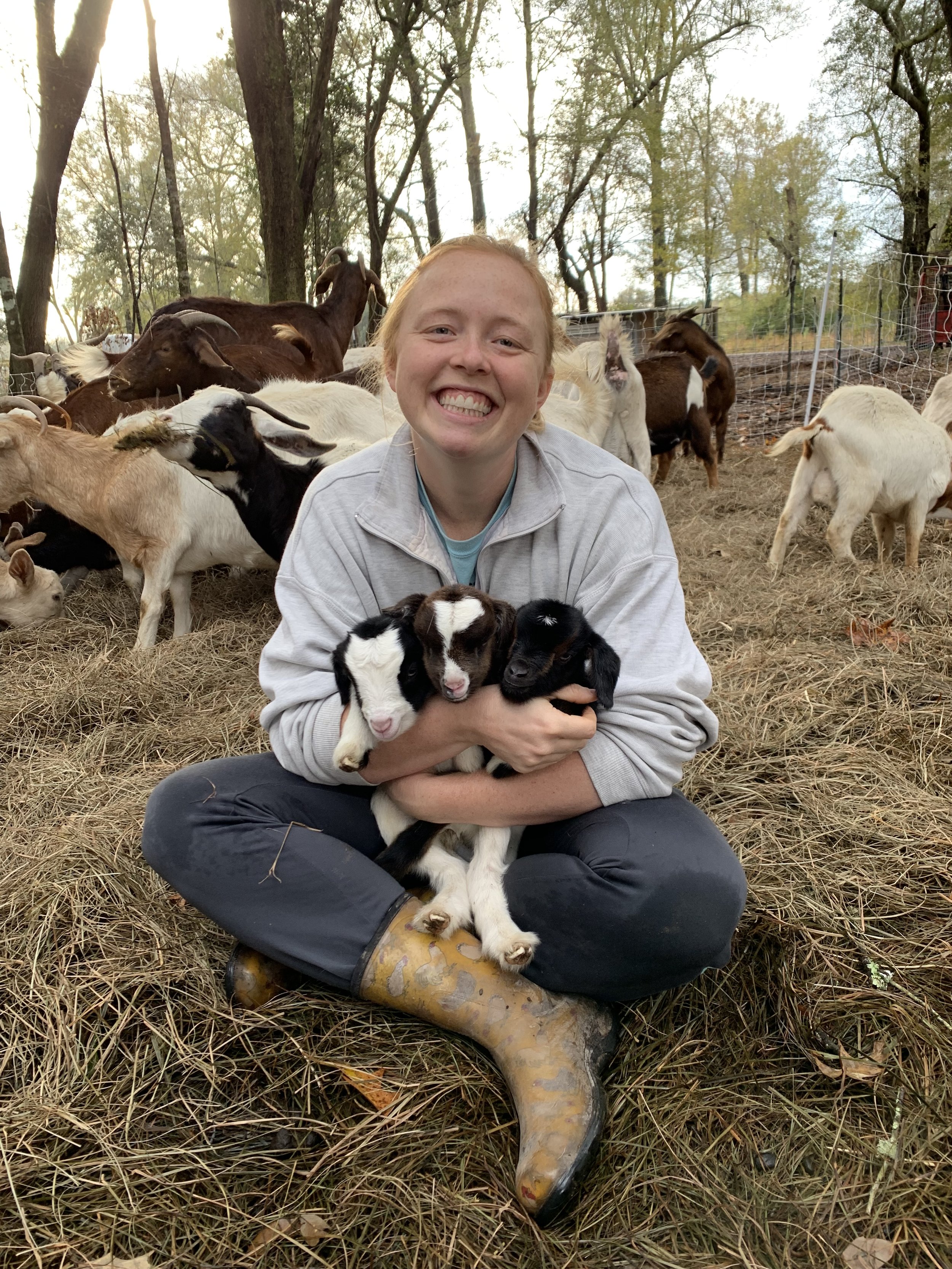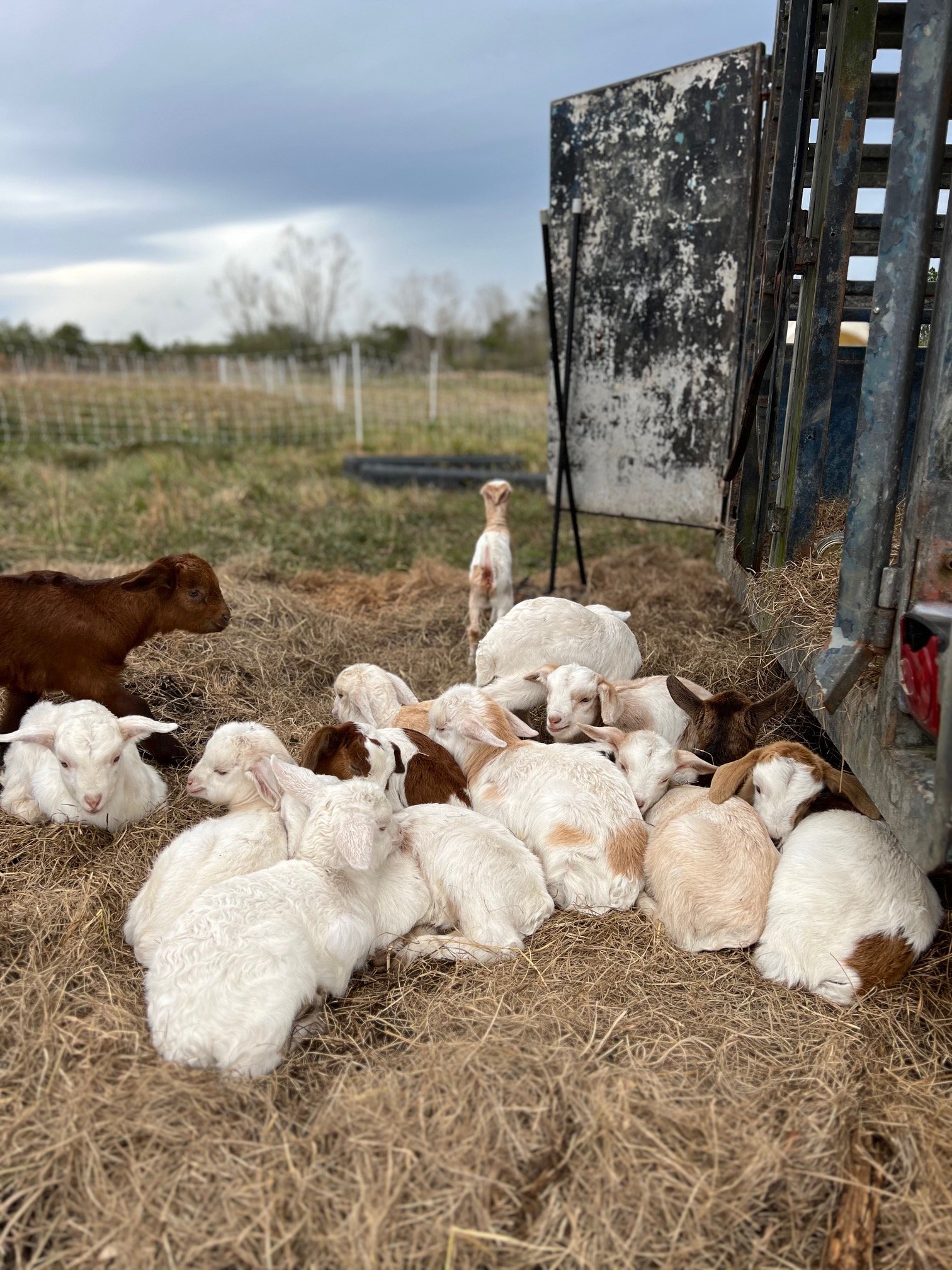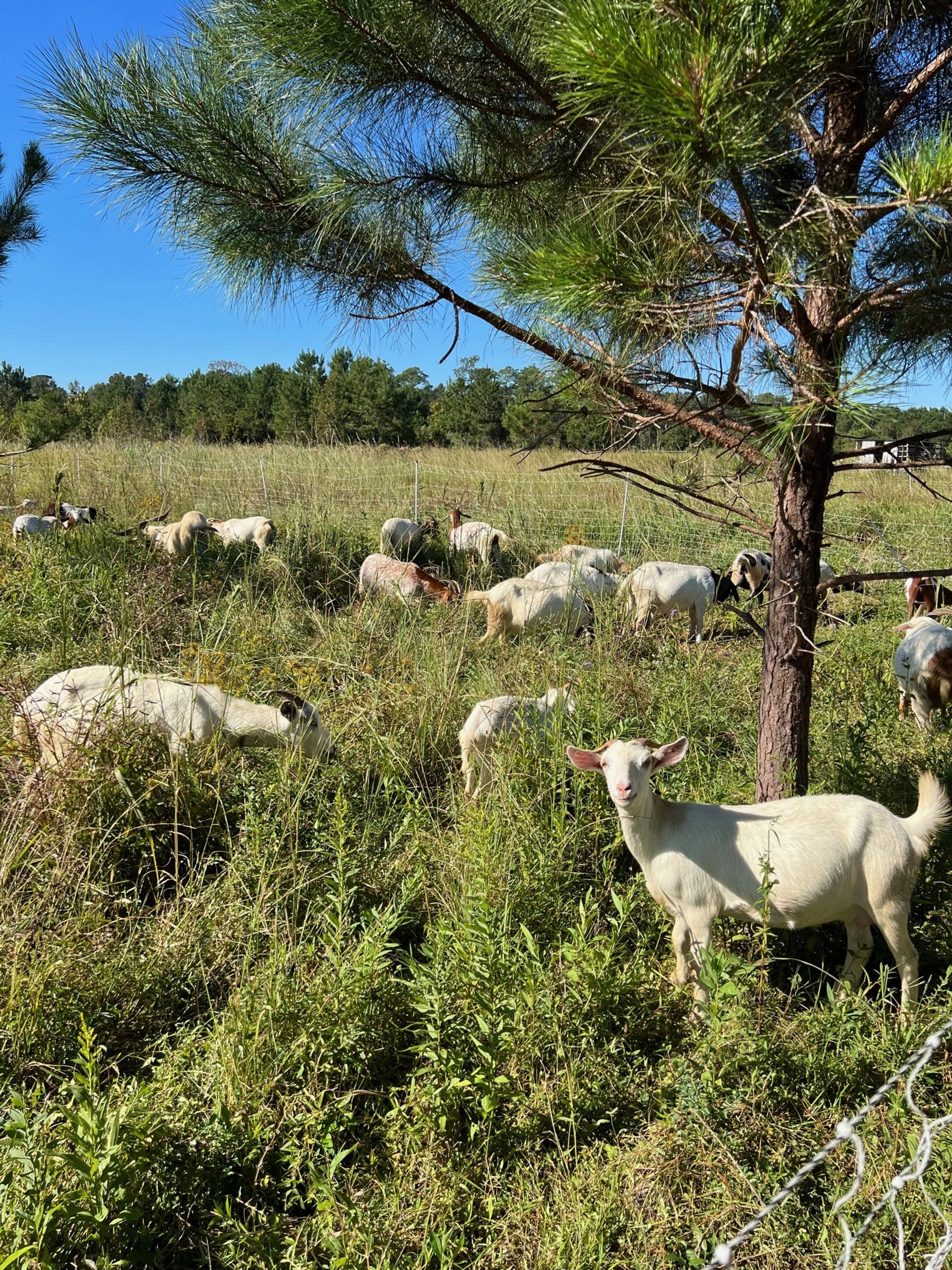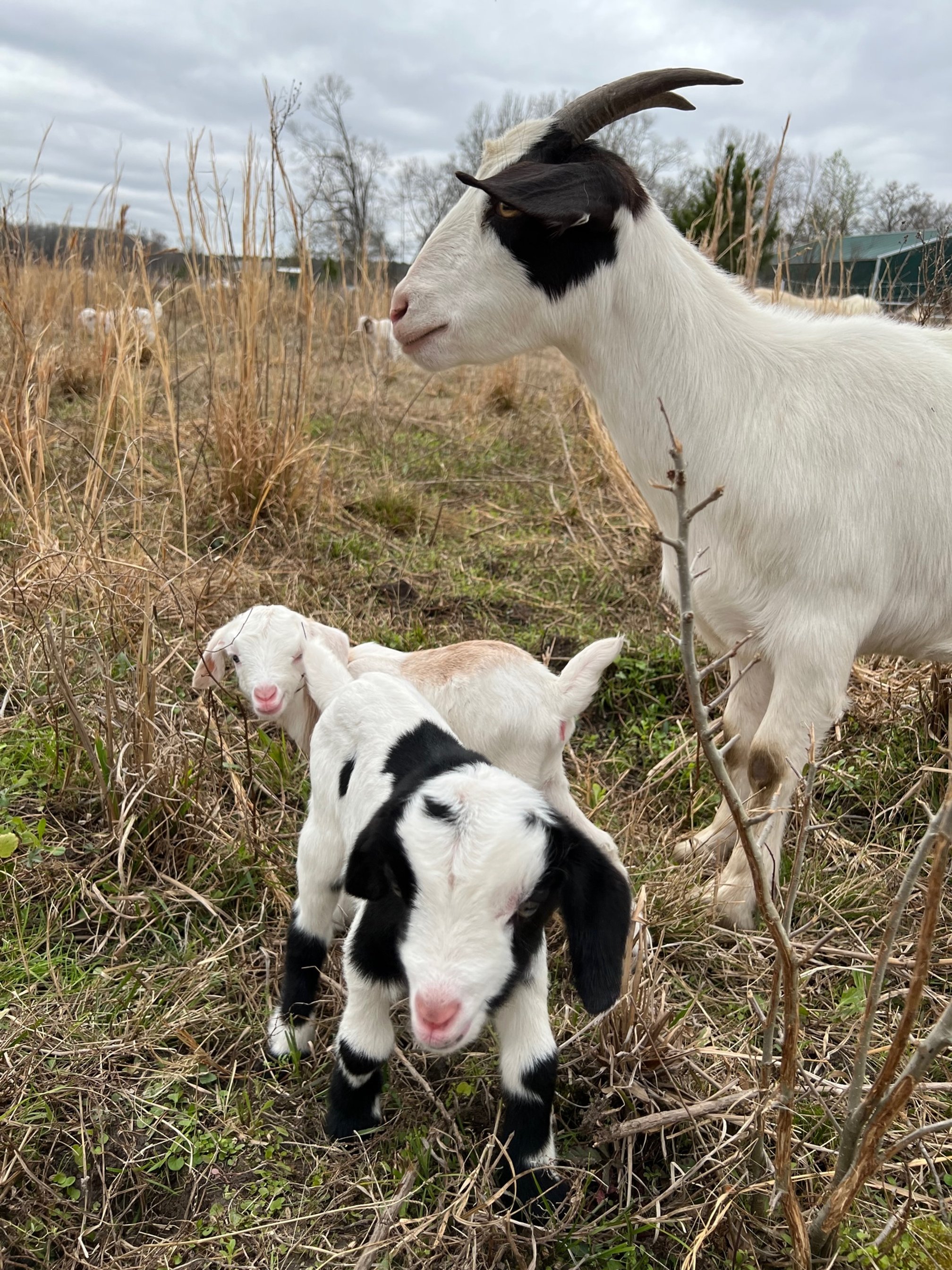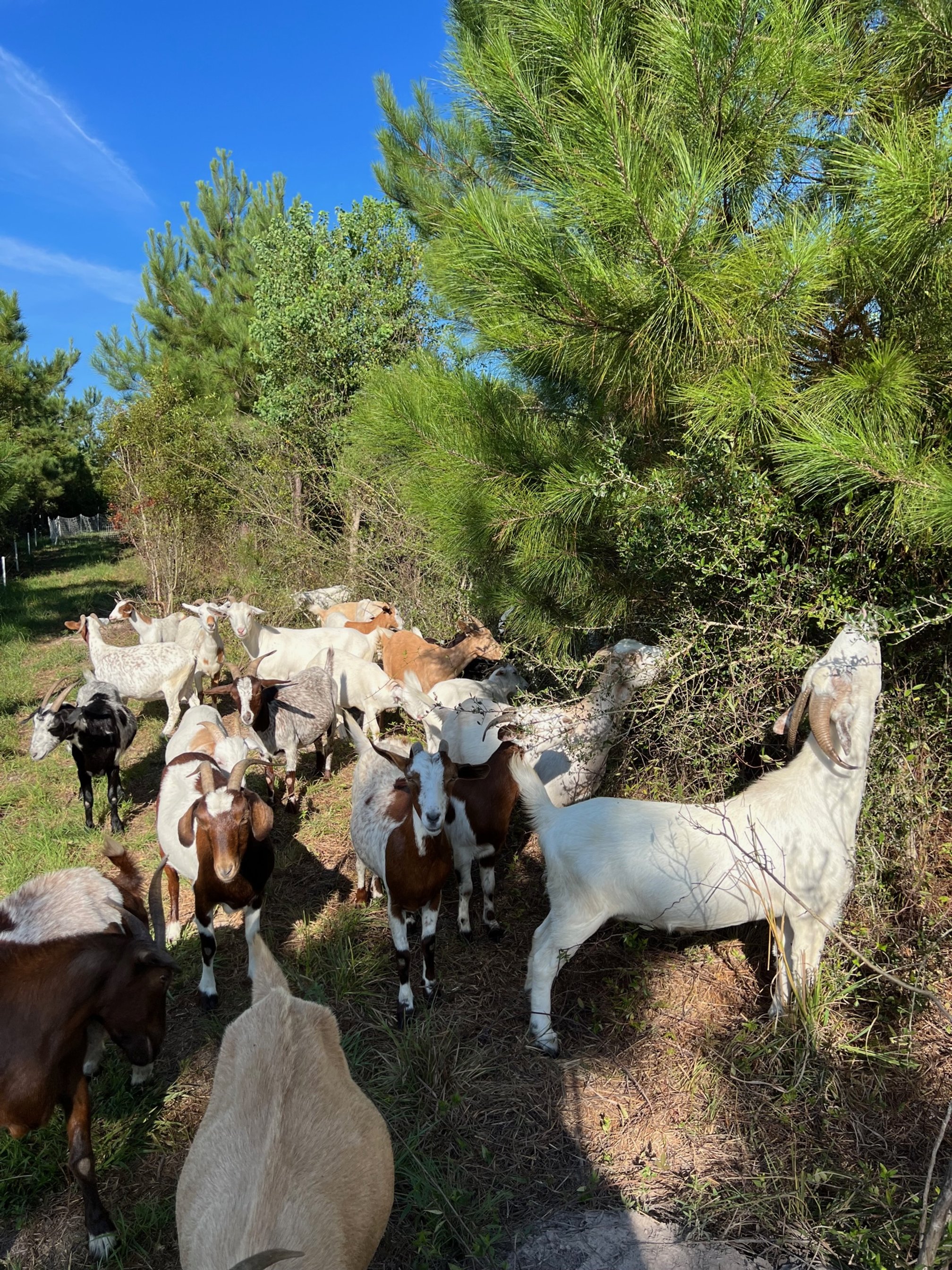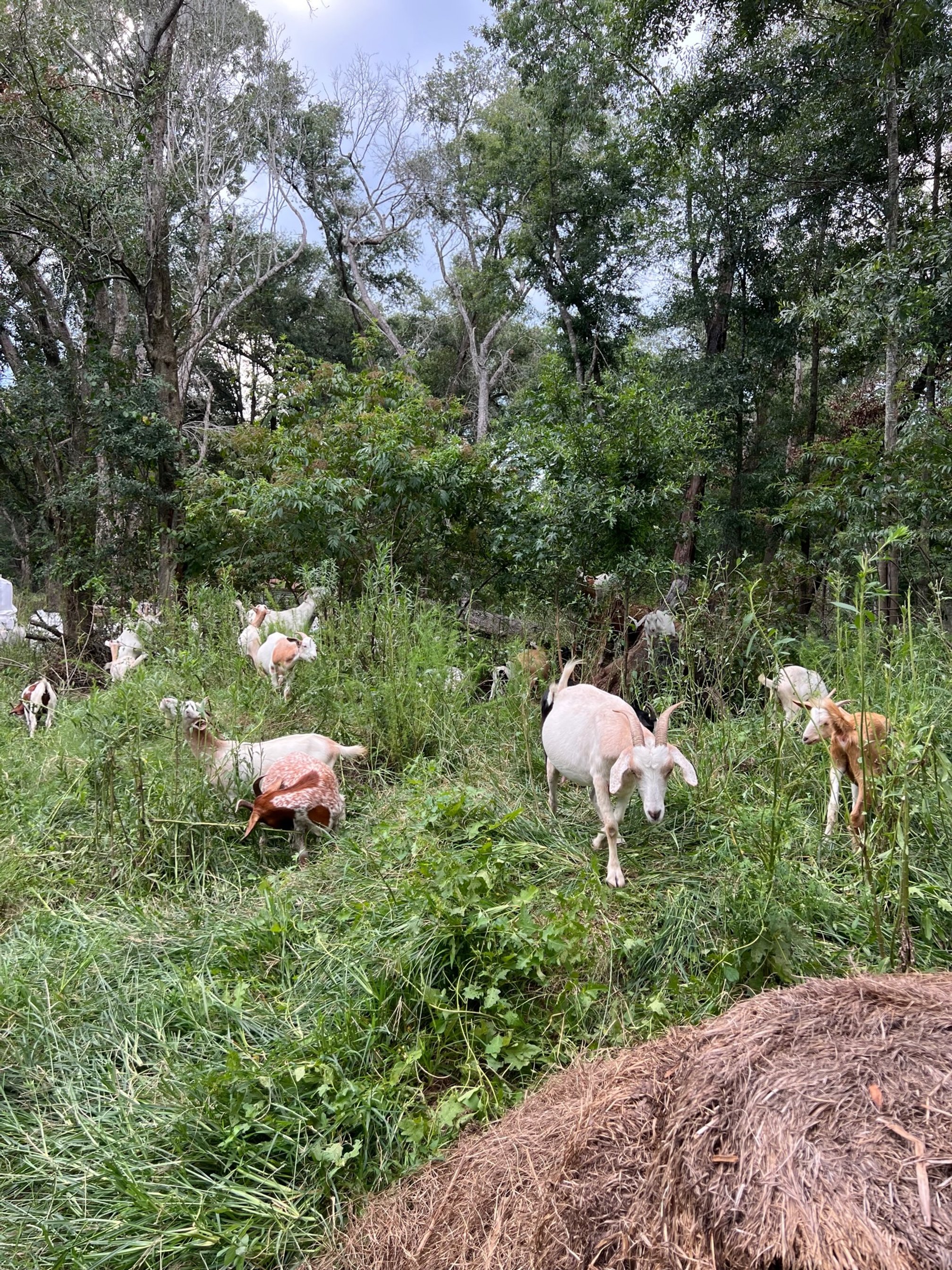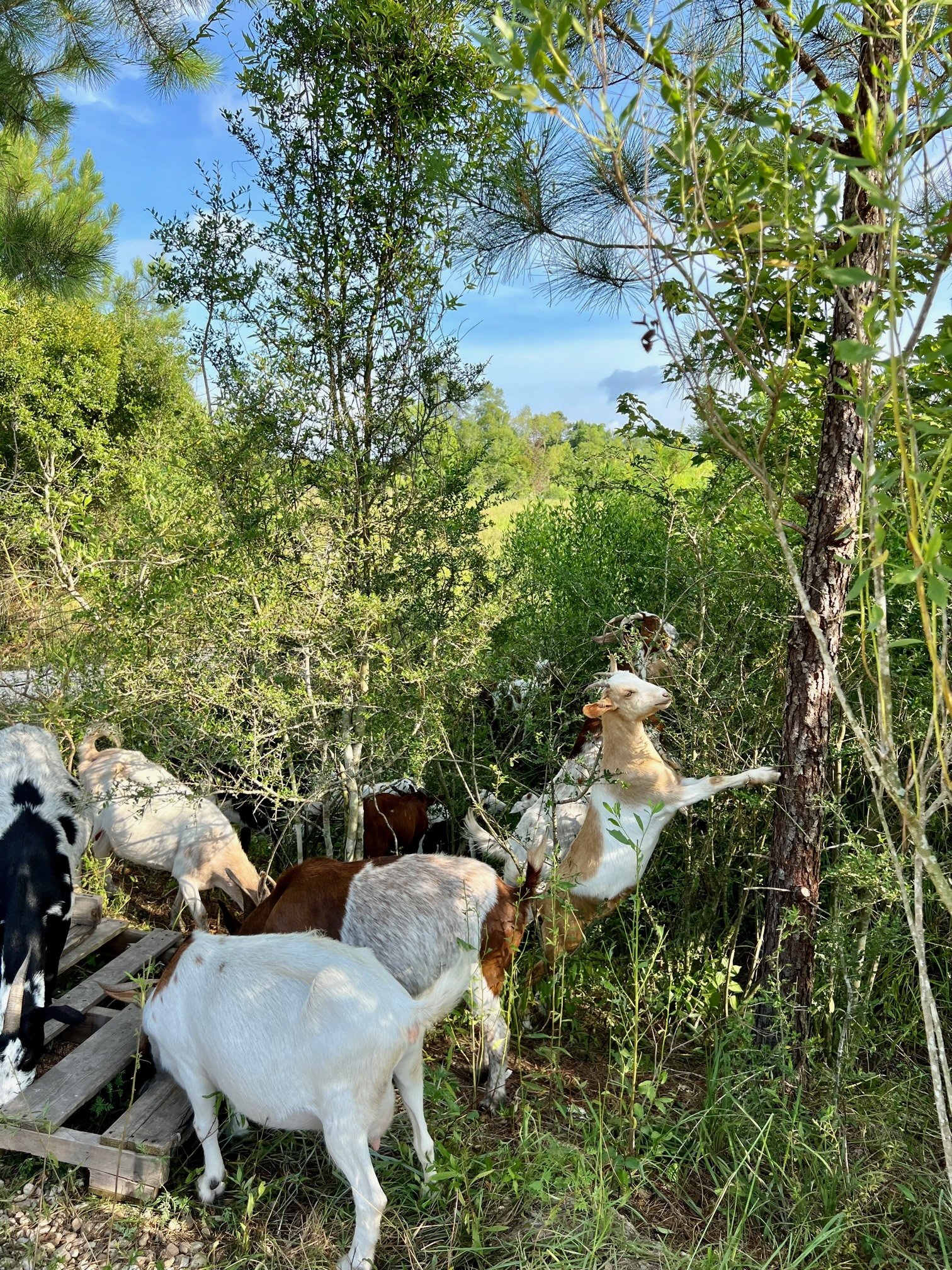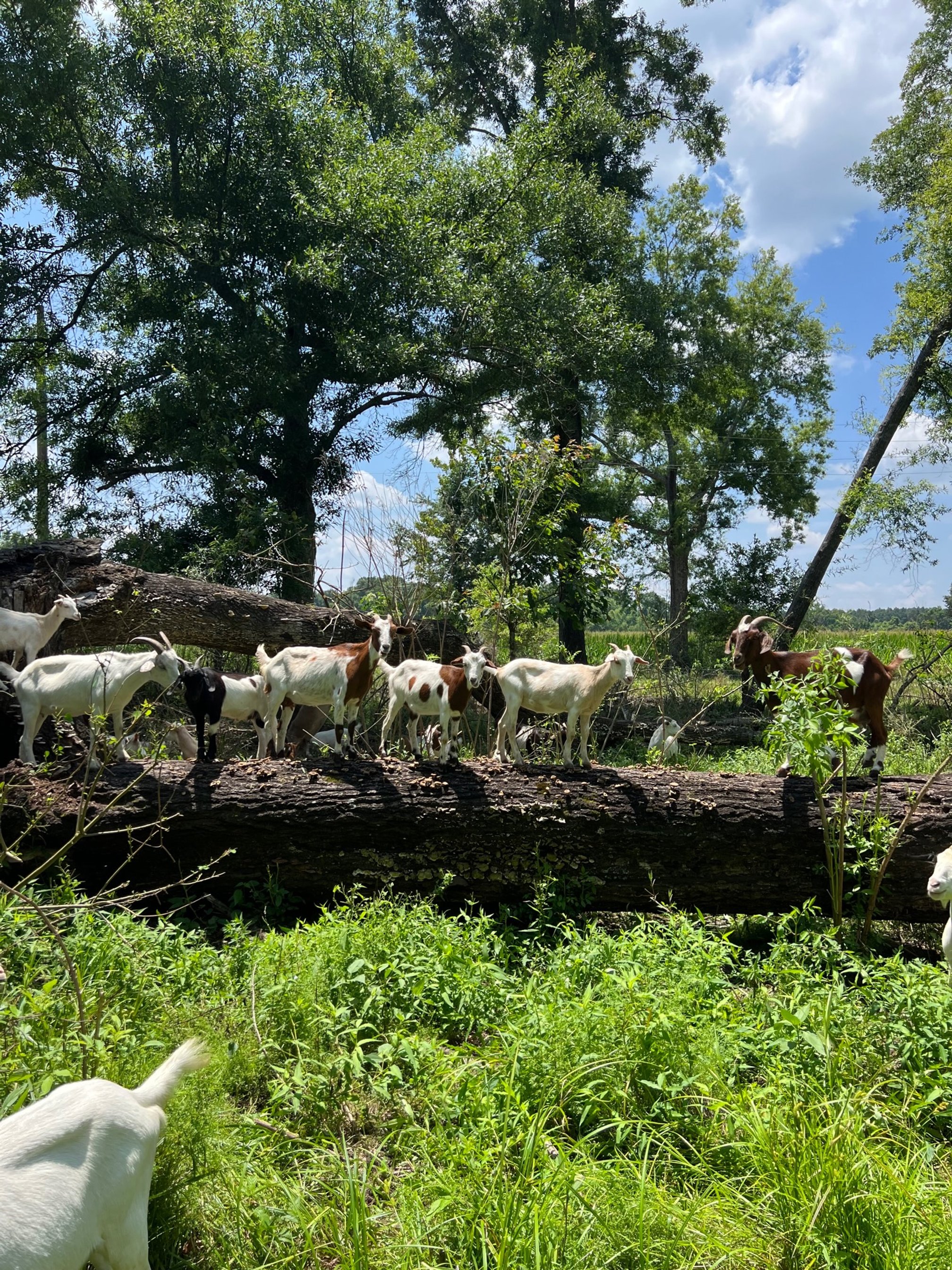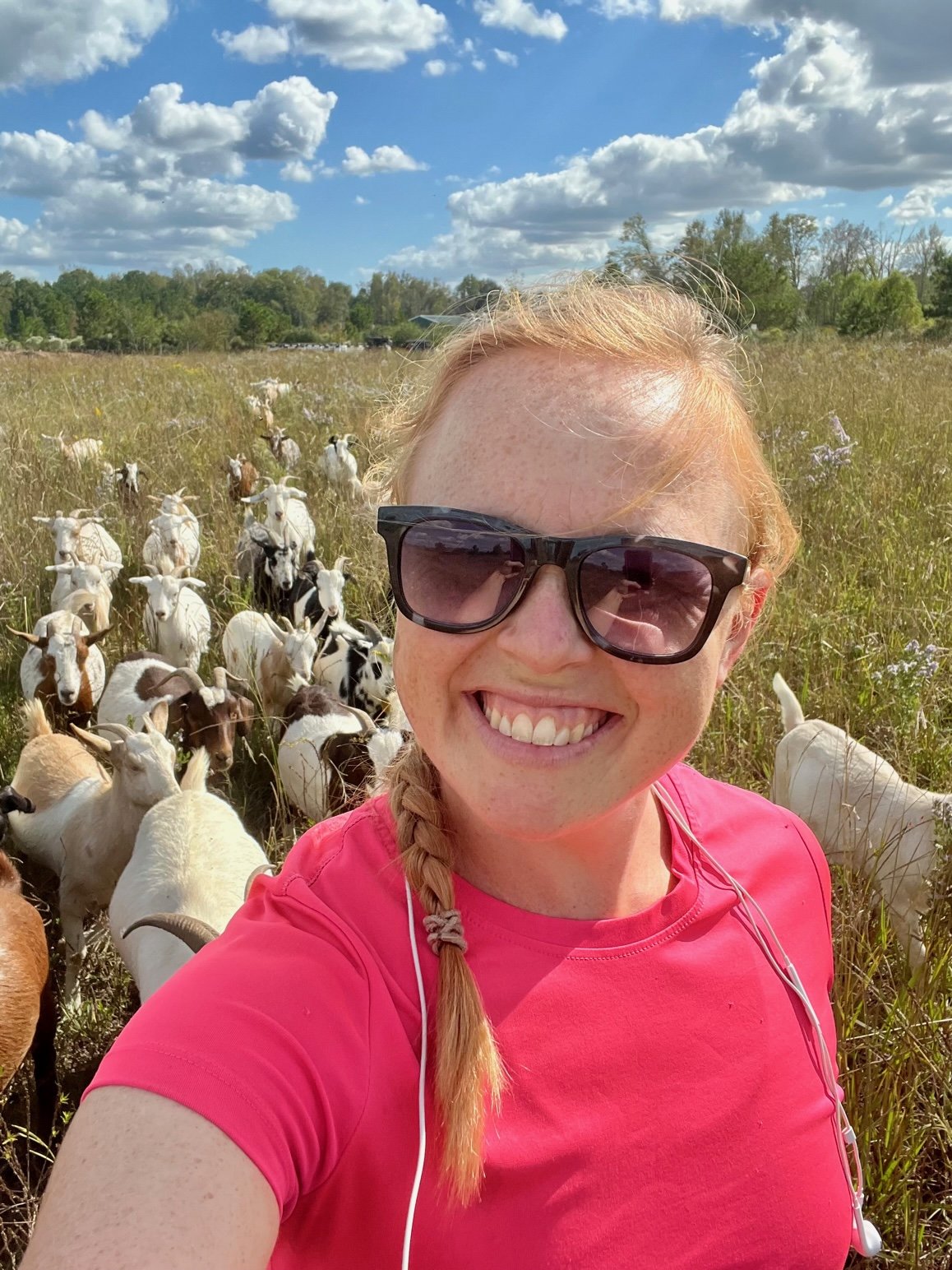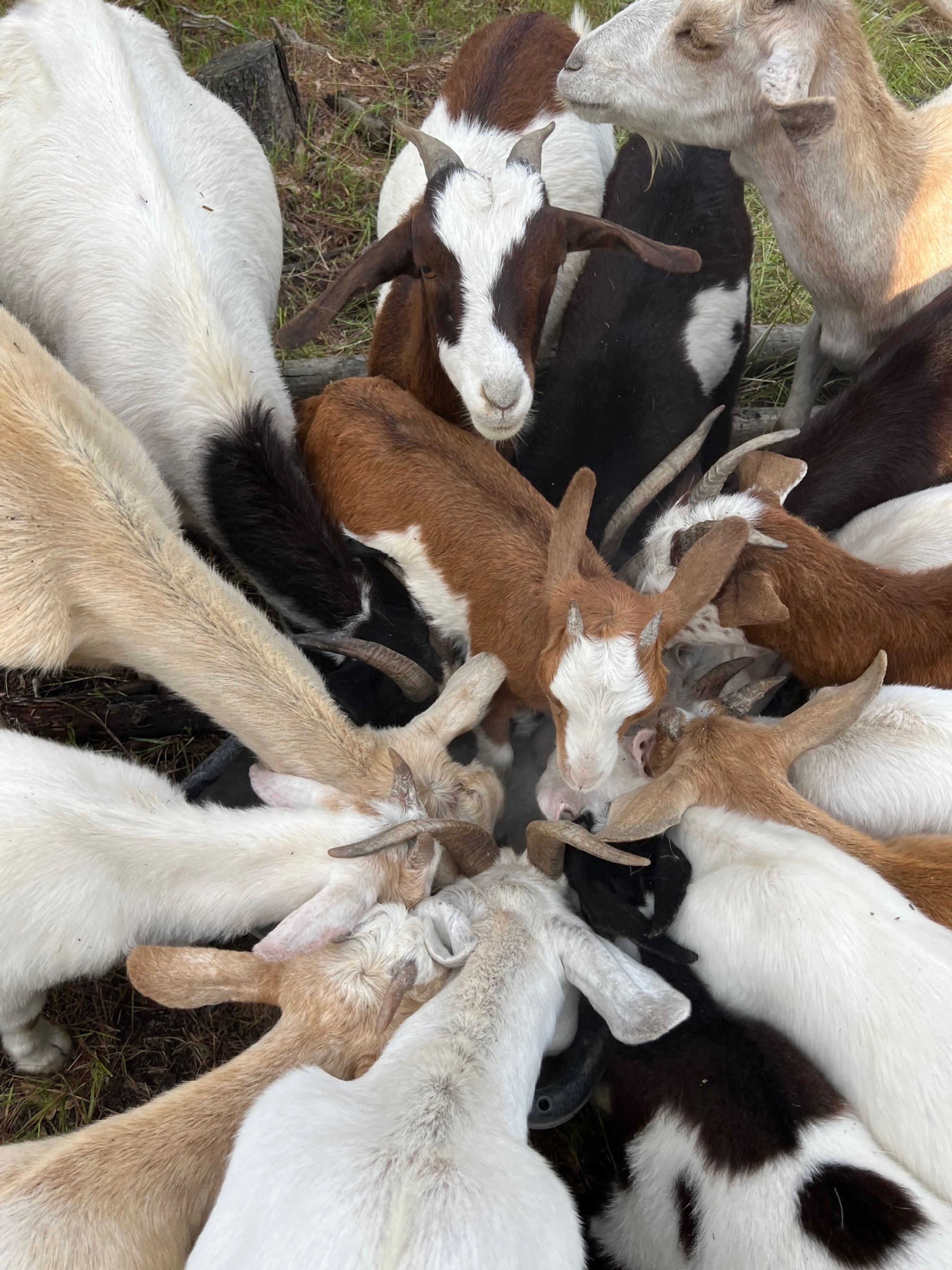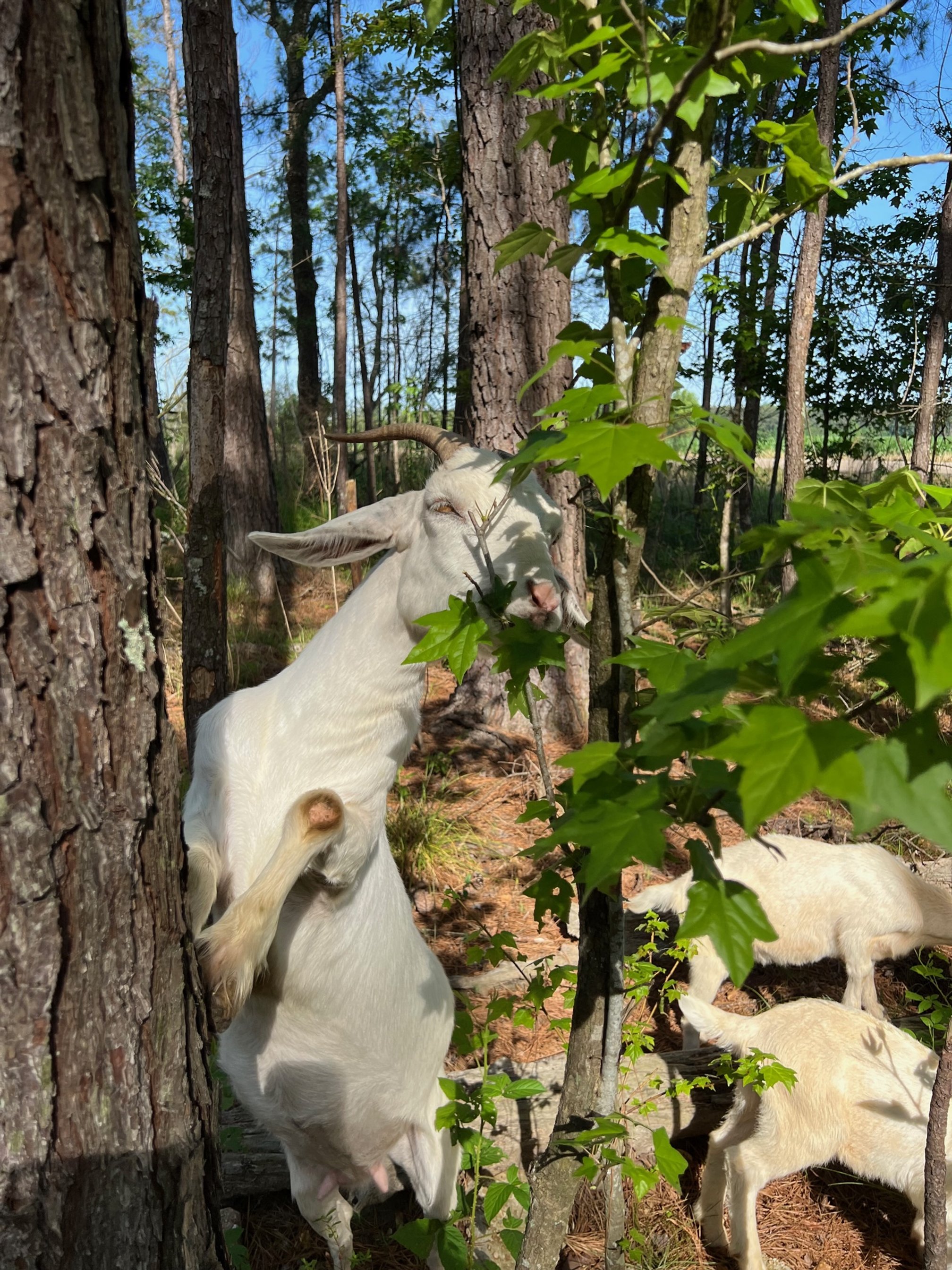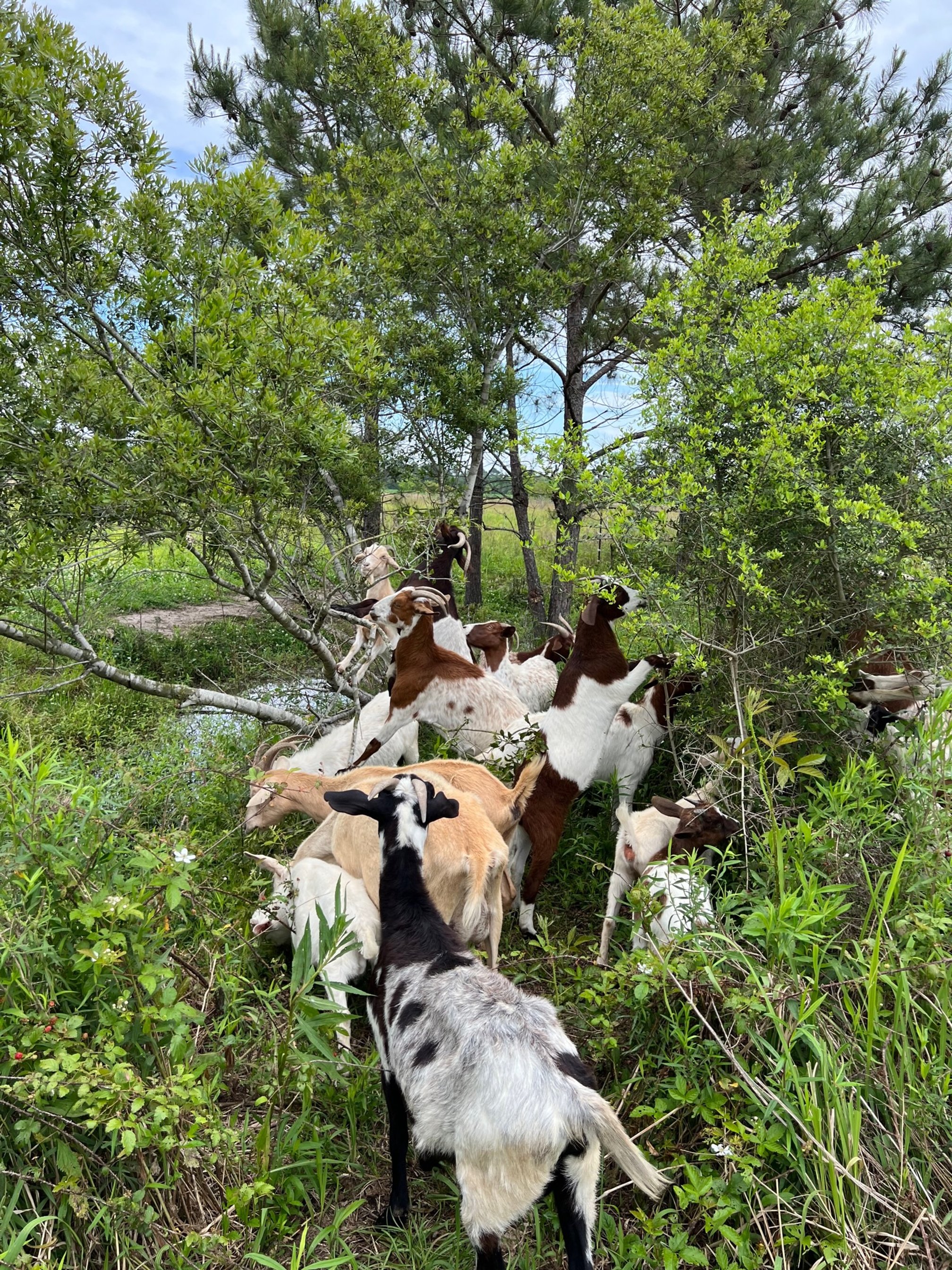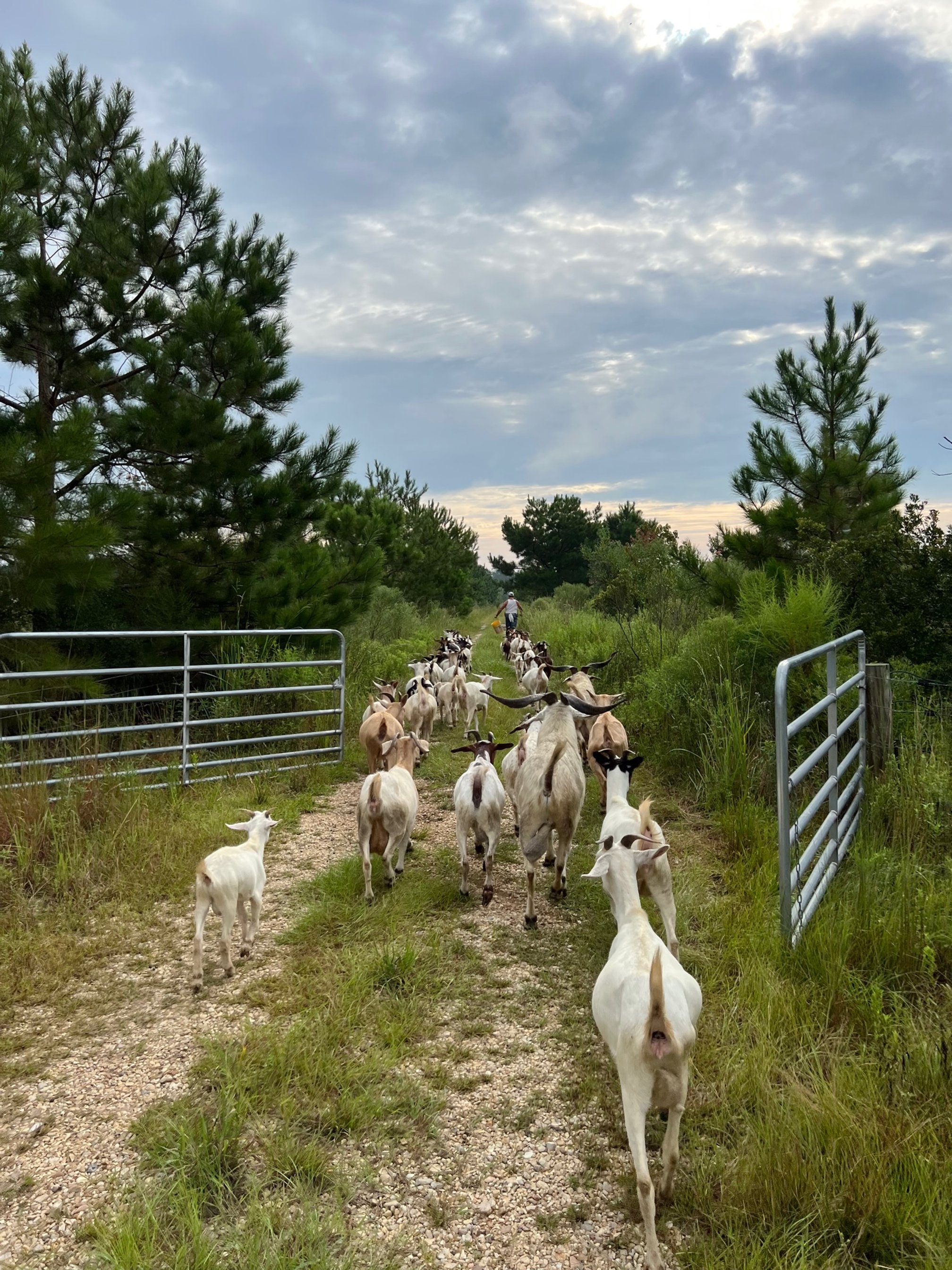Wild-Foraged Goat
Our breeding herd of goats are raised on pasture and in woods. The goats rotationally graze on pasture, mowing down the overgrown vegetation, fertilizing with their manure and stirring up the seed bank with their hooves, helping us gradually build back the plant and soil quality and keeping weeds, vines, brush and saplings that the cattle don’t eat in check.
By rotating through the forest as well, the goat herd eats shrubs and vines there as well, helping us return it to a healthy and vibrant forest ecosystem. As ruminant animals, the goats eat great variety of plants, but no grain. Similar to other ruminants like cattle and sheep, nature designed them with stomaches to digest cellulose in grasses and shrubs.
Feeding them grain fattens them up faster, but disrupts nature’s way, wherein they convert plant matter that isn’t digestable to humans into nutrient-dense, vitamin-rich protein. Too much grain for herbivores like goats can also create problems in their rumens, causing sickness and need to then be treated with pharmaceuticals.
While not as popular in America, goat meat (also known as chevon or cabrito) is the most commonly eaten meat in the world. It has a flavor profile somewhere between venison, lamb and beef and is naturally fairly lean. We like to cook it using methods traditional to cultures where goat is popular, such as barbacoa, jerk, gyros and curry.
Goat Meat
Head to our online storefront and go to the “Wild-Foraged Goat Meat” category to view available cuts and pricing.
Live Goat Sales
Depending on the time of the year, we may have goats available for purchase. Our herd is a triple cross of Kiko, Boer and Myotonic breeds, all meat goat breeds crossed for various desirable traits (natural parasite resistance, easy kidding, good mothering, etc.) and hybrid vigor.
Currently, we have the following available:
Bucks: Two in tact bucks, born December 2022 and chosen from two of our best does to breed our herd this year. Their work is complete (they sired a beautiful class of kids this year!) and they are ready for new pastures. $300 each.
Weaned Kids: We had 30 kids born between January 20-28th and another three born between February 13-15. While they are eating feed and growing like crazy, we leave them on their moms for a minimum of three months, so they will be available towards the end of April at the earliest. The bucklings are currently in tact, but can be castrated. There are several breeding quality bucklings that would make great herd sires. $175 for bucklings or wethers, $225 for doelings.
Call or text Grant at 504-234-3564 if interested.
